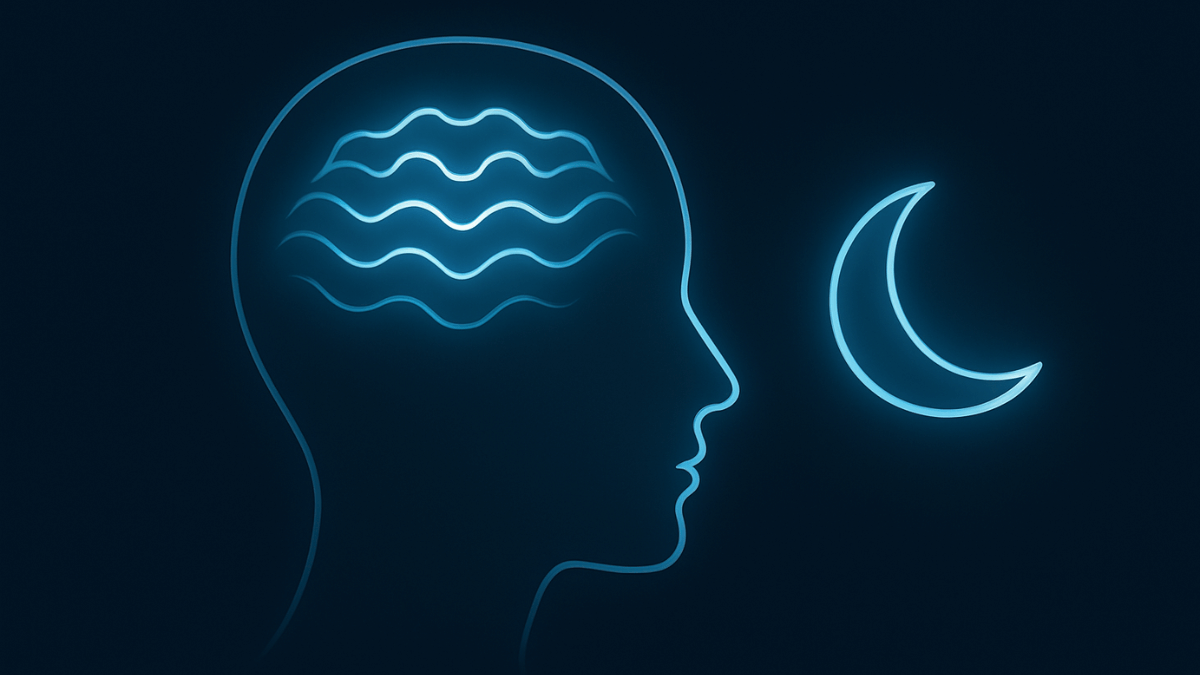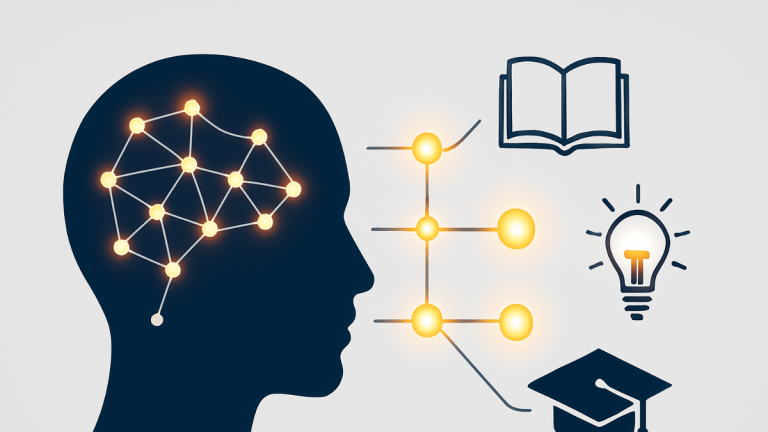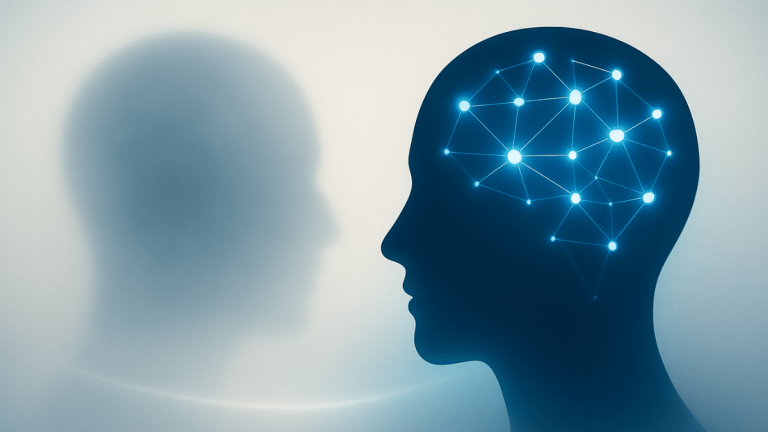The Ultimate Guide to Sleep Optimization for Peak Brain Performance
In today’s demanding “hustle culture,” we’re often sold a dangerous myth: that sleep is a luxury for the weak, a necessary evil to be minimized in the relentless pursuit of success. We’re told to rise earlier, stay up later, and sacrifice rest for the sake of productivity. But as someone who has spent over 18 years researching cognitive enhancement, I can tell you that this approach isn’t just misguided—it’s a direct path to burnout, cognitive decline, and chronic <u>brain fog</u>.
The cutting-edge of neuroscience confirms an age-old truth: sleep is the brain’s most powerful and non-negotiable performance-enhancing tool.
Far from being passive downtime, sleep is an active, highly organized process where your brain meticulously works to consolidate memories, clear out metabolic toxins, repair neural pathways, and prepare you for peak cognitive function the next day. When you neglect your sleep, no amount of caffeine, <u>nootropics</u>, or productivity hacks can fully compensate for the deficit. You are simply operating on a degraded, inefficient system, fighting an uphill battle against your own biology.
In this ultimate guide, we will move beyond simple tips and dive deep into the science of sleep. We’ll explore the foundational habits that protect it, the nutritional strategies that support it, and the advanced techniques that can elevate it. By the end, you will have a complete blueprint to master your rest—so you can wake up feeling sharper, more focused, and ready to perform at your absolute best, day after day.
Understanding Your Sleep Cycles: The Science of Rest
To truly optimize your sleep, you first need to understand what’s happening when you close your eyes. Your night is not one long, uniform state of rest. Instead, it’s a dynamic and fascinating journey through multiple cycles, each lasting approximately 90 minutes. Within each cycle, your brain transitions through different stages of non-REM (NREM) and REM sleep. For peak brain performance, the two most critical stages are Deep Sleep and REM Sleep. Think of them as two different, highly specialized maintenance crews that come in to service your brain each night.
Deep Sleep (NREM Stage 3): The Physical Restoration Crew
This is your brain’s physical restoration and cleanup phase. During this stage, your brainwaves become slow and highly synchronized, known as delta waves, and your body enters its most profound state of rest. Your heart rate and breathing are at their slowest, and your muscles are fully relaxed. This is when a host of crucial physiological processes occur, including the release of human growth hormone (HGH) for cellular and tissue repair throughout your body.
Most importantly for your brain, a remarkable process called the glymphatic system kicks into high gear. This system, which is ten times more active during sleep than when you’re awake, acts like a cerebral sanitation network. It uses cerebrospinal fluid to actively flush out metabolic waste and neurotoxins that accumulate between brain cells during your waking hours. One of the most critical toxins it removes is beta-amyloid, a protein that, if allowed to build up, can form sticky plaques that impair cognition and are strongly linked to the development of neurodegenerative diseases. Getting sufficient deep sleep is essential for waking up feeling physically refreshed, reducing systemic inflammation, and starting the day with a genuinely clear mind.
REM (Rapid Eye Movement) Sleep: The Mental & Emotional Integration Crew
This is your brain’s high-level mental and emotional processing center. Identified by the rapid, darting movements of the eyes beneath the eyelids, REM sleep is a period where your brain is highly active, with brainwave patterns that closely resemble those of an awake, alert state. This stage is absolutely vital for creativity, complex problem-solving, and, most famously, memory consolidation.
During REM, your brain works to integrate new skills and information you learned during the day. It replays and strengthens important neural pathways, effectively transferring fragile, short-term memories into robust, long-term storage networks. This is why a good night’s sleep after studying is so critical for exam performance. Furthermore, REM sleep is when you process emotions and uncouple them from the raw memory of an event, which is why chronic REM deprivation can lead to emotional volatility and heightened anxiety.
To ensure you complete the necessary 4-6 full cycles each night, the single most important factor is consistency. An inconsistent schedule, late-night light exposure, or alcohol can severely disrupt these delicate patterns, robbing you of the critical deep and REM sleep your brain desperately needs to function at its peak.
The Core Principles of Sleep Hygiene
“Sleep hygiene” is a clinical term for the set of habits and environmental factors that have a direct and profound impact on your ability to fall asleep and stay asleep. These are not just minor suggestions; they are the non-negotiable foundation of optimal sleep. Mastering these fundamentals is the essential first step before considering any advanced techniques or supplements. Forgetting these is like trying to build a house without a foundation.
Maintain a Consistent Sleep-Wake Schedule: Anchor Your Clock
This is the undisputed king of all sleep advice and the anchor of your entire circadian rhythm—your body’s ~24-hour internal clock. Your brain thrives on routine and predictability. By going to bed and waking up at roughly the same time each day—and yes, this includes weekends—you train your body’s internal clock to anticipate sleep and wakefulness. This makes it significantly easier to fall asleep at night, as your brain learns to release the sleep-promoting hormone melatonin at the correct time. It also makes it easier to wake up naturally in the morning, often without an alarm, because your body has learned to time the release of the alertness hormone cortisol to coincide with your wake-up time. Consistency is the language your circadian rhythm understands best.
Master Your Light Exposure: The Most Powerful Signal
Light is the most powerful external signal that calibrates your circadian rhythm. Managing it correctly is a biological imperative for good sleep.
- Dim the Lights in the Evening: In the crucial 1-2 hours before bed, you must reduce your exposure to bright, blue-spectrum light. This type of light, which is heavily emitted from screens like phones, tablets, laptops, and TVs, is interpreted by a special set of receptors in your eyes as midday sun. This signal travels directly to your brain’s master clock and actively suppresses the production of melatonin. To counteract this, consider using blue-light-blocking glasses in the evening, enabling “night mode” or “dark mode” on all your devices, and switching from harsh overhead lights to dim, warm-colored lamps in your home.
- Seek Sunlight in the Morning: Conversely, it is just as important to get 10–20 minutes of direct, natural sunlight soon after waking. Do not wear sunglasses. This powerful dose of morning light hits the same receptors in your eyes and sends a strong signal that the day has begun. This triggers a healthy cortisol awakening response that promotes daytime alertness, elevates mood, and firmly anchors your body clock for the entire 24-hour cycle.
Create a Sleep Sanctuary: Your Cave for Rest
Your bedroom environment should send a clear, unambiguous signal to your brain: this is a place for rest and nothing else. This means it needs to be meticulously engineered to be cool, dark, and quiet.
- Cool: The ideal temperature for sleep is surprisingly low, around 65°F (18°C). A drop in your core body temperature is a powerful natural biological trigger for sleep onset. A room that is too warm can lead to restless, fragmented sleep as your body struggles to cool itself.
- Dark: Your goal should be absolute, pitch-black darkness. Use high-quality blackout curtains to block streetlights, an eye mask to block ambient light, and even small pieces of black electrical tape to cover the tiny electronic lights on chargers and smoke detectors. Even minuscule amounts of light can be detected by your skin and eyelids, potentially disrupting your sleep cycles.
- Quiet: Unpredictable noises can easily pull you out of the deeper stages of sleep. Block out disruptive sounds with high-quality earplugs or, even better, a white noise machine. A white noise machine produces a consistent, soothing sound that masks sudden noises like a car door slamming or a dog barking, creating a stable auditory environment for your brain to relax in.
Develop a Pre-Sleep Wind-Down Routine: The Off-Ramp for Your Brain
You can’t expect your brain to go from the high-alert state of a workday to a deep sleep in five minutes. You need to create a buffer zone, an “off-ramp” from the highway of your day. A relaxing, repeatable routine for the 30-60 minutes before bed signals to your body and mind that it’s time to prepare for rest. This is not about adding more tasks to your to-do list; it’s about calming your nervous system. Good options include: light reading of a physical book (not a stimulating thriller), gentle stretching or foam rolling to release physical tension, journaling to clear your mind of the day’s worries and to-dos, or taking a warm shower or bath. The warm water raises your body temperature, and the subsequent rapid cooling as you get out and into your cool bedroom mimics the natural temperature drop that helps induce sleep.
Nutrition and Supplements for Better Sleep
What you consume, especially in the hours leading up to bedtime, can be a powerful ally or a disruptive foe to your night’s rest. While no supplement can replace poor sleep hygiene, a smart nutritional strategy, incorporating some of the <u>top brain-boosting foods</u>, can provide the final layer of optimization.
Strategic Nutrition
- Implement a Caffeine Curfew: Caffeine is a powerful central nervous system stimulant with a surprisingly long half-life of 5-6 hours. This means that if you have a cup of coffee at 3 p.m., half of that caffeine is still circulating in your system at 8 or 9 p.m., actively blocking the receptors for adenosine, a chemical that promotes sleepiness. For most people, a strict “no caffeine” rule at least 8-10 hours before bedtime is essential for protecting sleep quality.
- Limit or Eliminate Alcohol Before Bed: While alcohol is a sedative and may make you feel drowsy, it is one of the most potent disruptors of sleep architecture. It may help you fall asleep faster, but as your body metabolizes it, it causes a “rebound” effect. This severely fragments the second half of your night’s sleep and dramatically suppresses the restorative REM stage. This is why you often wake up feeling tired and mentally foggy after a night of drinking, even if you slept for a full 8 hours.
- Balance Your Final Meal: Avoid large, heavy, or spicy meals within three hours of bedtime, as they can cause indigestion and raise your core body temperature, both of which interfere with sleep. A balanced dinner with a good source of protein, healthy fats, and complex carbohydrates can help maintain stable blood sugar throughout the night. A sharp dip in blood sugar in the middle of the night can trigger a cortisol release, causing you to wake up.
Targeted Supplementation
While not a replacement for good habits, certain well-researched supplements, which fall under the broad category of <u>nootropics</u>, can be powerful allies.
- Magnesium (Glycinate or L-Threonate): This essential mineral is a superstar for sleep. It plays a key role in relaxing the nervous system by acting on the parasympathetic (“rest and digest”) branch. It also helps regulate neurotransmitters that promote calm, like GABA. The Glycinate form is highly bioavailable and gentle on the stomach, while the L-Threonate form has been shown in studies to effectively cross the blood-brain barrier. A typical dose is 200-400mg taken 30-60 minutes before bed.
- L-Theanine: This amino acid, naturally found in green tea, is unique in its ability to promote a state of “wakeful relaxation” without causing sedation. It works by increasing alpha brain waves, which are associated with a calm, meditative state. This makes it exceptionally effective for quieting a racing mind and easing the transition into sleep, especially for those who struggle with anxiety at night. A common dose is 100-200mg.
- Melatonin: This is perhaps the most misunderstood sleep supplement. Melatonin is a hormone, not a sedative. Its job is to signal to your body when it’s time to sleep. It is therefore best used strategically and in very low doses (0.5-1mg) to help reset your body clock, especially for overcoming jet lag or adjusting to a new work schedule. It is not recommended as a nightly sleep aid for most people, as long-term use can impact your body’s own natural production of the hormone. For those interested in a comprehensive, pre-formulated stack that includes several sleep-supportive ingredients like L-Theanine, you can read my <u>in-depth review of Mind Lab Pro</u>.
Frequently Asked Questions about Sleep
Does it matter what time I go to sleep if I get 8 hours?
Yes, it matters significantly. Your body’s internal clock (circadian rhythm) is synchronized with the natural light-dark cycle. The most restorative deep sleep and REM cycles tend to be concentrated earlier in the night, typically between 10 p.m. and 2 a.m. While getting 8 hours is crucial, getting those hours in alignment with your natural rhythm will result in much higher quality, more restorative sleep.
Can you “catch up” on sleep on the weekends?
While sleeping in on the weekend can help reduce some of the immediate “sleep debt” from the week, it is not a perfect solution and can disrupt your circadian rhythm, leading to a “social jetlag” effect that makes it harder to wake up on Monday morning. The best long-term strategy is to maintain a consistent wake-up time every single day.
Why do I still feel tired after 8 hours of sleep?
This is often a sign of poor sleep quality, not just poor quantity. You could be getting 8 hours of light, fragmented sleep. Common culprits include drinking alcohol before bed (which suppresses REM sleep), a bedroom that is too warm or not dark enough, or undiagnosed issues like sleep apnea. Focusing on improving your sleep hygiene is the key to making your 8 hours more restorative.
Peter Benson’s Take
After more than 18 years of researching this topic, I’ve found that the single most overlooked factor in sleep quality is a consistent wake-up time. While everyone focuses on their bedtime, the real secret to mastering your sleep cycle isn’t about forcing yourself to sleep at 10 p.m.; it’s about forcing yourself to wake up at the same time every single day.
Your wake-up time is the anchor for your entire circadian rhythm. By getting up at 6 a.m. every morning—no exceptions, even on weekends—you send a powerful, consistent signal to your brain. This single habit will naturally make you feel tired at the right time in the evening far more effectively than any supplement or sleep hack. Stop negotiating with your snooze button. Anchor your morning, and your nights will follow.
Conclusion
Optimizing your sleep is the most fundamental and impactful “nootropic” of all. It is the bedrock upon which all other cognitive enhancement strategies are built. When you consistently prioritize high-quality rest, you <u>unlock sharper focus</u>, faster learning, stronger memory consolidation, and greater emotional resilience. It is the ultimate daily reset for your brain, and best of all, it is completely free.
The journey to better sleep is not about finding a single magic bullet, but about systematically implementing the right habits. Start by respecting your natural sleep cycles and making your sleep environment an impenetrable sanctuary. Master the fundamentals of sleep hygiene before trying advanced techniques. Use nutrition and supplementation to support—not replace—your efforts. Remember, consistency is the key to unlocking the profound, long-term gains in brain performance that come from a truly restorative night’s sleep.
What is your single biggest challenge when it comes to getting a good night’s sleep? Share it in the comments—your insight might help someone else finally unlock their best rest.




